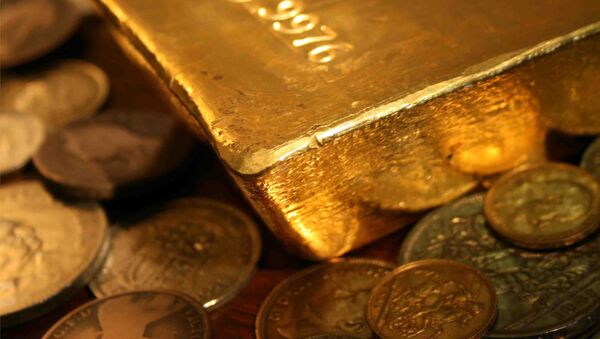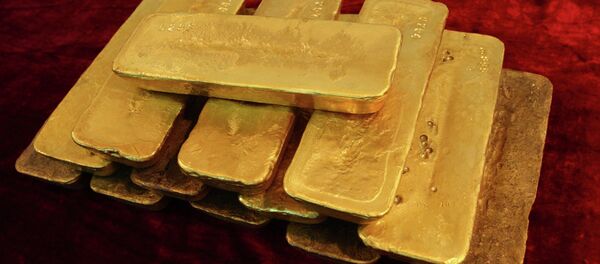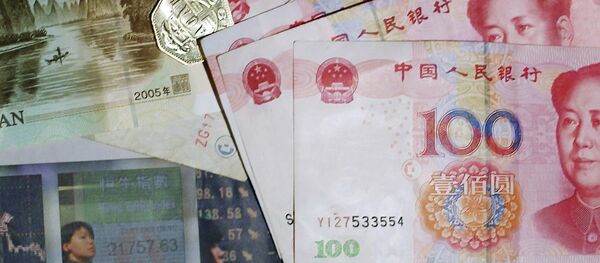China has established its largest gold-investment fund in northwest China's Xi'an City, the ancient starting point of the famous Silk Road, aiming to bolster Beijing's role in global gold trade.
Citing state-run Shanghai Securities Journal, Asia markets expert Laura He underscores that in addition to buying stakes in gold-mining projects and companies along the New Silk Road, the gold fund will be also aimed at investing in gold-mine stocks and establishing gold exchange-traded funds.
"The fund may also boost China's power over the world gold market and could increase the use of the yuan in pricing gold," Laura He noted, quoting Chinese economist Song Qinghui.
"China does not have a big say in gold pricing because it accounts for a small share of international gold trade. Therefore, the Chinese government seeks to increase the influence of RMB in gold pricing by opening the domestic gold market to international investors," Tang Xisheng said as cited by Xinhua.
According to Laura He, the major stakeholders of the fund are Shaanxi Gold Group and Shandong Gold Group (with a combined 60 percent stake), Shanghai-listed Industrial Bank Co. and Sichuan Western Resources Holding Co. (each holding 15 percent).
Indeed, Asia's gold demand is growing rapidly, accounting for more than 70 percent of the global total. Today China is the world's largest gold producer, and both major importer and consumer of the precious metal.
Predictably, Asia's "golden rush" raises concerns in the West, prompting Western mass media to speculate that Beijing may soon introduce a new gold standard to displace the dollar. Furthermore, China may introduce its gold fixing reference price in yuan before the end of this year, reports say.
Meanwhile, the International Monetary Fund (IMF) has recently admitted that the Chinese currency is "no longer undervalued," actually opening doors for the yuan to global currency market.
In the light of Beijing's latest move, the dollar proponents' concerns are looking far from being "groundless."





